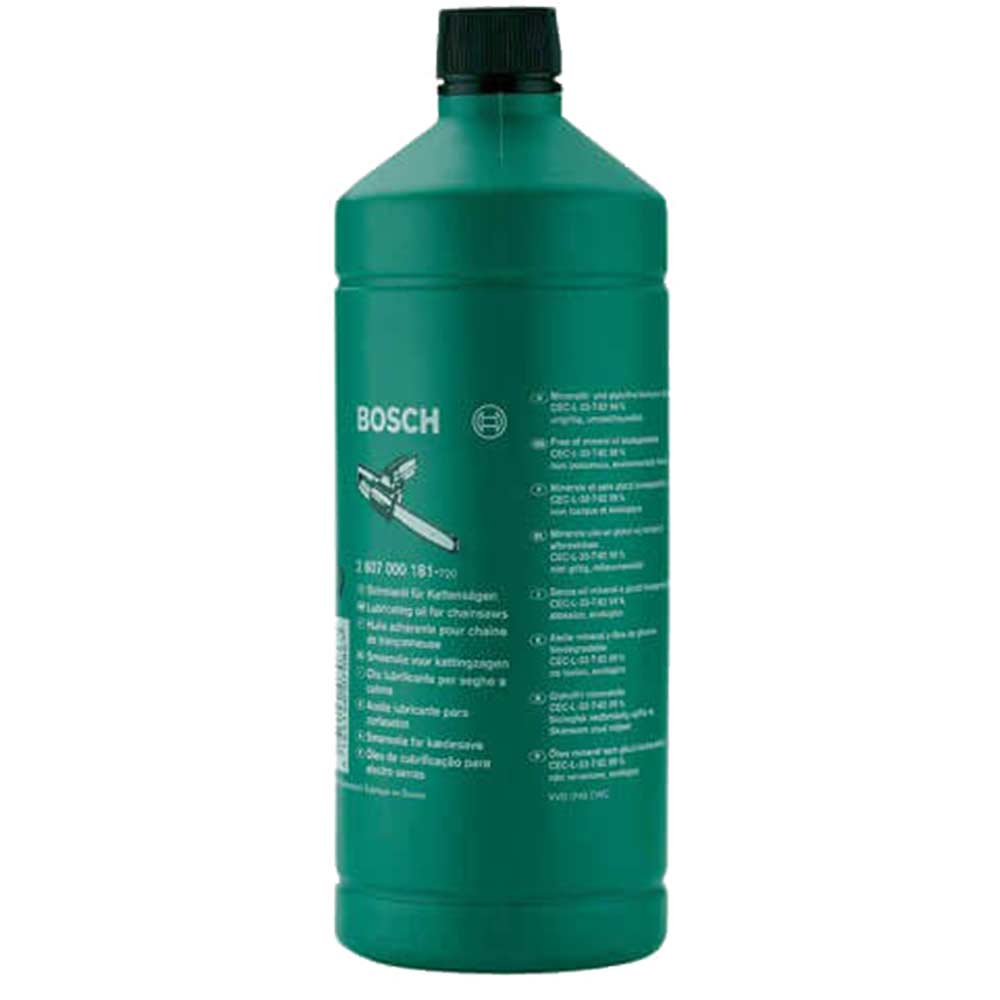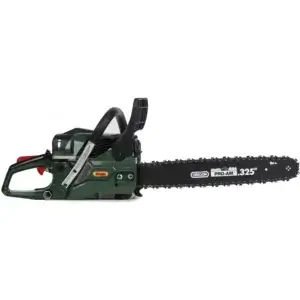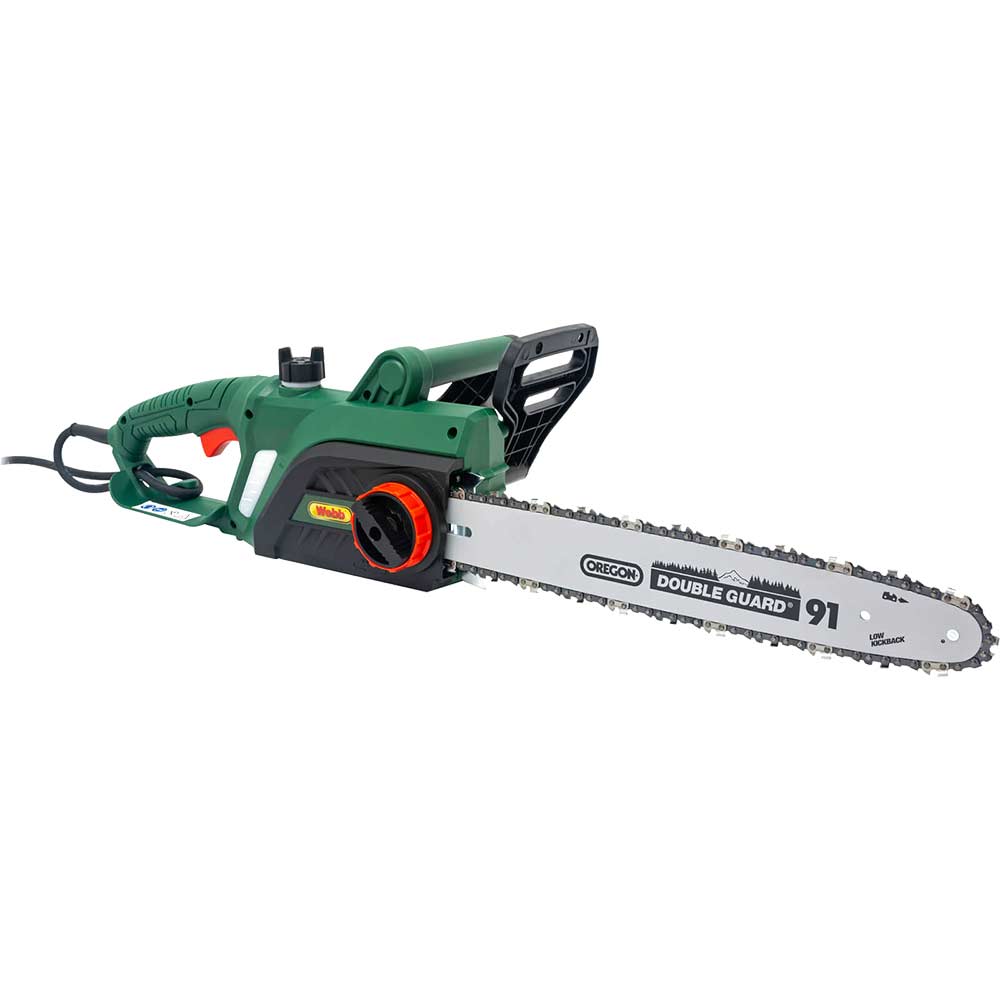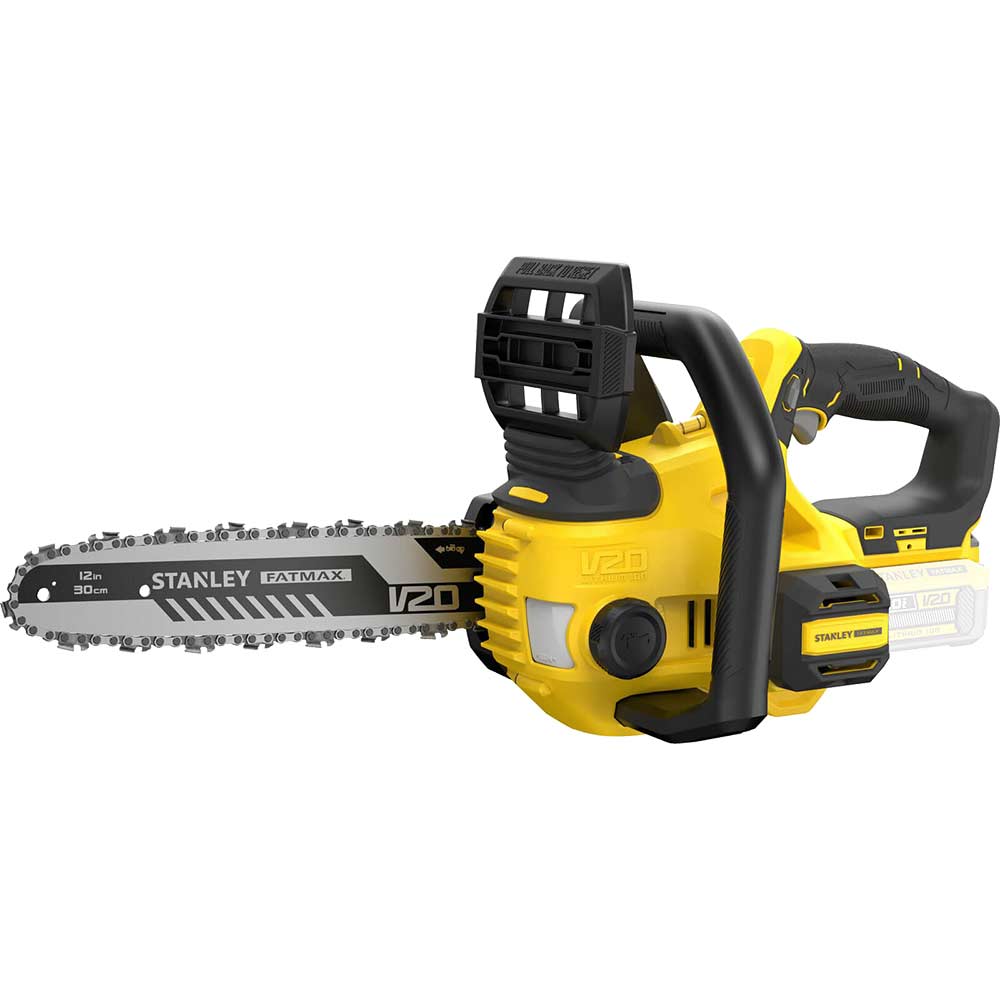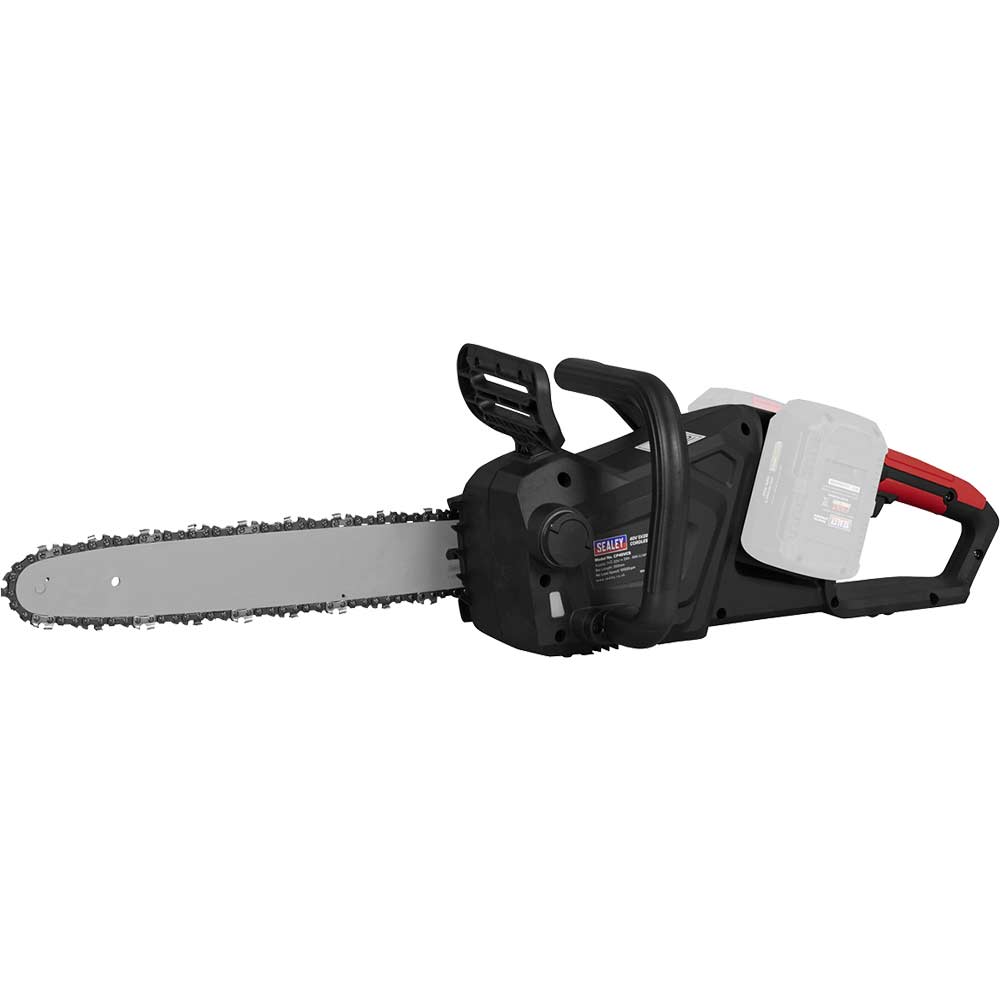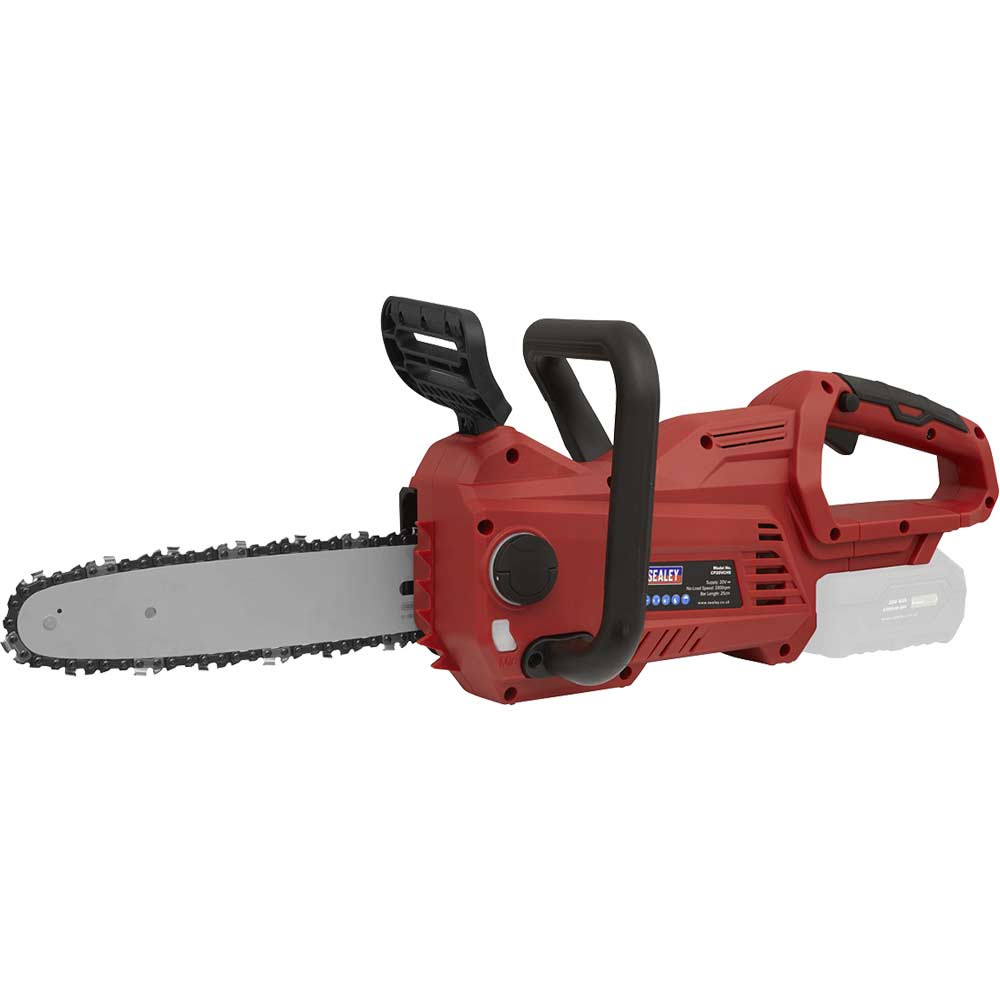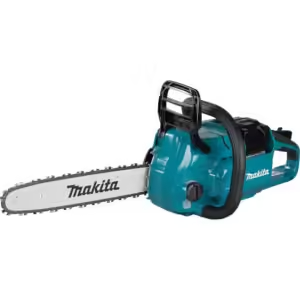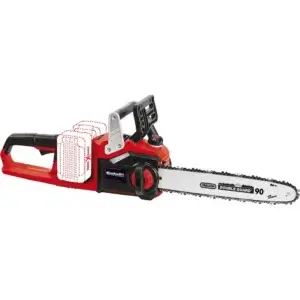Selecting the right oil for chain saw lubrication is essential for efficient and safe operation. Many users underestimate the impact of using the wrong lubricant, leading to reduced performance and increased wear on equipment.
This article will explore the types of chainsaw oils and lubricants available, the factors to consider when choosing the best one, and seasonal considerations for lubricants. By understanding these key points, readers will learn how to select the appropriate chainsaw lubricating oil to keep their tools functioning optimally and extend their lifespan.
Key Takeaways
- Proper chainsaw lubrication prevents overheating and extends equipment lifespan
- Selecting the right oil type enhances cutting efficiency and performance
- Biodegradable oils offer eco-friendly options without sacrificing lubrication quality
- Regularly checking oil levels is essential for maintaining chainsaw functionality
- Always follow manufacturer recommendations for optimal oil selection tailored to your chainsaw model
Understanding the Importance of Proper Chainsaw Lubrication

Proper chainsaw lubrication is essential for protecting chainsaw components from wear and damage. The right chainsaw lubricant enhances performance by ensuring smooth operation, while effective oil application prevents overheating. Additionally, regular use of chainsaw bar grease and bar and chain lube maximises the lifespan of the chainsaw. Understanding these factors will aid in selecting the best oils and lubricants tailored to individual needs.
Protecting Chainsaw Components From Wear and Damage
Utilising the correct chainsaw lube oil can significantly reduce wear on the chainsaw’s components. A quality lubricant ensures that the chainsaw blade oil adheres to the chain, preventing metal-on-metal contact that leads to premature wear. Understanding the specifications of the lube, such as its viscosity, helps in selecting the right product for optimal performance in various working conditions.
Chainsaw lube plays a crucial role in enhancing the efficiency of cutting operations. For instance, without adequate lubrication, the chainsaw bar and chain can overheat, compromising their integrity. Accessing a safety data sheet (SDS) for a chosen lubricant can provide vital information about its composition and safe usage, ensuring users make informed decisions that prolong the lifespan of their equipment.
Regular maintenance, including the application of suitable chainsaw lube, not only protects individual components but also boosts overall operation. A well-lubricated chainsaw operates smoothly, resulting in cleaner cuts and less strain on the motor. By prioritising proper lubrication and selecting the best oils tailored to the specific chainsaw model, users can enhance their equipment’s longevity and efficiency, ultimately leading to safer and more productive cutting sessions.
Enhancing Performance With Appropriate Lubricants
Choosing the right lubricants, such as chainsaw bar lube, is vital for optimising the performance of a chainsaw. Quality lubricants facilitate smoother operation, allowing the chain to glide easily along the bar. This helps to reduce friction and prevent overheating, which could lead to damage and decreased cutting efficiency.
Vegetable oil serves as an eco-friendly alternative to traditional chainsaw lubricants. Many users appreciate its biodegradable properties, making it a safer option for the environment. Properly formulated vegetable oil can offer adequate lubrication while ensuring the chainsaw operates effectively, ultimately meeting the needs of those looking to balance performance with sustainability.
Regularly applying appropriate lubricants not only enhances cut quality but also minimises wear on critical components. Improved lubrication leads to more consistent cutting performance, enabling users to work efficiently with less strain on the chainsaw’s motor. By taking the time to select the right chainsaw bar lube, users can ensure their equipment lasts longer and performs better during every job.
Preventing Overheating Through Effective Oil Application
Preventing overheating is one of the most critical reasons to apply the correct chainsaw oil effectively. When a chainsaw chain lacks adequate lubrication, friction increases significantly, causing both the chain and the bar to heat up rapidly. Selecting a high-quality chainsaw lubricant with the right viscosity not only reduces friction but also disperses heat, helping maintain optimal operating temperatures during cutting tasks.
Regular application of chainsaw oil ensures that the chain runs smoothly along the bar, minimizing the risks associated with overheating. Users should opt for oils specifically designed for their chainsaw model, as these products are formulated to provide optimal lubrication in varying conditions. For instance, synthetic chain oils often perform better in extreme temperatures, maintaining their viscosity and protective properties, thereby extending the lifespan of the equipment.
Understanding the relationship between lubrication and chainsaw performance can guide users in choosing the best oils and lubricants. Conducting routine checks on the oil reservoir and regularly topping up with the appropriate lubricant not only prevents overheating but also maximises cutting efficiency. By prioritising effective oil application, users will notice a significant improvement in their chainsaw’s performance, leading to safer and more productive cutting experiences.
Maximising Chainsaw Lifespan With Regular Lubrication
Regular lubrication is essential for maximising the lifespan of a chainsaw. Frequent application of the appropriate chainsaw oil ensures that the chain and bar remain well-protected from friction and wear, preventing damage that can lead to costly repairs. By prioritising proper lubrication, users can significantly enhance the longevity and reliability of their equipment.
Using the right type of lubricant tailored to specific chainsaw models is vital for maintaining performance and durability. High-quality chainsaw oils are formulated to adhere well to the chain, reducing wear and ensuring smoother operations during cutting tasks. This not only improves cutting efficiency but also minimises the risk of overheating, directly contributing to the lifespan of the chainsaw.
Engaging in regular maintenance practices, such as checking oil levels and applying the correct lubricants, can have a profound effect on chainsaw performance. For instance, synthetic oils may offer superior protection under extreme conditions, which can further extend the life of the equipment. By understanding and addressing lubrication needs, users can achieve reliable performance and longer-lasting chainsaws, making their investments worthwhile.
Types of Chainsaw Oils and Lubricants Available

Selecting the right chainsaw oil is vital for optimal performance and lifespan. Mineral-based oils offer a balance of advantages and limitations, while synthetic oils may be ideal in specific scenarios. Biodegradable options cater to environmentally conscious users. It is also essential to understand the distinction between bar and chain oil versus engine oil, ensuring each component receives appropriate lubrication.
Mineral-Based Oils: Advantages and Limitations
Mineral-based oils are a common choice for chainsaw lubrication due to their affordability and availability. These oils provide decent performance in average conditions, making them suitable for casual users who require regular maintenance without extensive demands on their equipment. Users often find that mineral-based oils protect their chainsaws adequately during light to moderate cutting tasks.
One advantage of mineral-based oils is their ability to adhere to the chain and bar, which can effectively reduce wear. However, they may not perform as well under extreme conditions, such as high temperatures or heavy-duty use. This limitation can lead to increased friction and overheating, potentially resulting in decreased chainsaw performance or even damage if not monitored closely.
Synthetic Oils: When to Consider Them
Synthetic oils are an excellent choice when a chainsaw user requires superior performance under challenging conditions. These oils maintain their viscosity and protective properties, even in extreme temperatures, making them ideal for both hot and cold weather. Gardeners and professionals working in varied environments often find that synthetic chainsaw oils enhance the reliability of their equipment.
When selecting chainsaw lubricants, users should consider synthetic oils if they engage in heavy-duty cutting tasks. Unlike mineral-based oils, synthetic options effectively reduce wear on the chain and bar, leading to longer lifespans for the chainsaw components. Additionally, these solutions can minimise overheating, which is crucial for maintaining optimal performance during extended use.
Using synthetic chainsaw oils may come with a higher price tag, but the benefits often outweigh the costs. Regular maintenance incorporating synthetic lubricants can prevent costly repairs and replacements. Users seeking a balance between performance and longevity should assess their cutting needs while evaluating the various oil options available. Therefore, understanding the different types of oils will significantly aid in selecting the best chainsaw oil and lubricants for individual needs:
- Understanding the benefits of synthetic oils.
- Evaluating the intended use of the chainsaw.
- Considering the price versus performance factor.
Biodegradable Oils for Environmental Consideration
Biodegradable oils have become an attractive option for those looking to minimise their environmental impact while using a chainsaw. These oils are typically made from renewable resources, making them safe for ecosystems and ideal for users concerned about pollution and sustainability. Choosing biodegradable chainsaw oil helps reduce the risk of harmful chemicals leaching into the soil and waterways during use and disposal.
When selecting biodegradable lubricants, it is essential to check for certifications that guarantee their environmental friendliness. Many brands now offer products that meet stringent eco-label requirements, ensuring they break down naturally over time without causing harm. Users should look for oils that demonstrate good performance in lubrication while maintaining their biodegradable properties, thus ensuring effective chainsaw operation during cutting tasks.
Utilising biodegradable chainsaw oil not only supports environmental sustainability but can also lead to improved performance with reduced emissions. These oils perform well across various weather conditions, allowing users to complete their tasks efficiently without compromising their commitment to eco-friendly practices. By opting for biodegradable lubricants, chainsaw users can protect both their equipment and the environment, creating a balance between functionality and ecological responsibility.
Differentiating Between Bar and Chain Oil and Engine Oil
Understanding the difference between bar and chain oil and engine oil is crucial for optimal chainsaw performance. Bar and chain oil is specifically formulated to lubricate the chain and bar of a chainsaw, preventing wear and overheating during cutting operations. In contrast, engine oil is intended for the engine components and does not provide the necessary lubrication for the bar and chain system.
Using the appropriate oil can significantly affect the lifespan and efficiency of a chainsaw. Bar and chain oil typically has additives that enhance its ability to stick to the bar and chain, providing continuous lubrication under high-friction conditions. Engine oil lacks these properties, which may lead to inadequate lubrication and potential damage to the cutting components.
Chainsaw users should always refer to the manufacturer’s recommendations when selecting oils for their equipment. It is vital to employ bar and chain oil to protect the cutting system, while engine oil should be reserved strictly for lubrication of the motor. By making this distinction, users can ensure their chainsaw operates effectively and reliably, minimising the risk of costly repairs or replacements.
Factors to Consider When Choosing Chainsaw Oil

Selecting the appropriate chainsaw oil hinges on several key factors. Understanding viscosity is vital as it directly impacts performance and lubrication efficiency. Ensuring compatibility with the specific chainsaw model can prevent damage and maintain optimal functionality. Additionally, operating conditions should guide the choice of oil, while weighing cost against quality ensures the best value for money, keeping performance and reliability intact.
Understanding Viscosity and Its Impact on Performance
Viscosity is a key factor in selecting the best chainsaw oil, as it directly influences the lubrication efficiency and overall performance of the equipment. A lubricant with the correct viscosity improves fluidity, ensuring that the oil adheres properly to the moving parts of the chainsaw. This adherence is crucial for reducing friction and heat, which can lead to wear and tear on the chainsaw components.
When choosing chainsaw oil, it is essential to consider the operating conditions. For example, high viscosity oils may be needed in colder weather to prevent the oil from becoming too thick, while lower viscosity options may be suitable for warmer conditions. Understanding the specific viscosity requirements for the chainsaw and its working environment can enhance the performance and longevity of the tool.
Users should also observe how viscosity affects the cutting efficiency and ease of operation. Using oil that is too thick can result in sluggish performance, while oil that is too thin may not provide adequate protection. Therefore, evaluating the chainsaw’s manual for recommended viscosity ratings, along with considering environmental conditions, is essential for selecting the most effective chainsaw oil:
- Importance of viscosity in lubrication efficiency.
- Impact of temperature on oil thickness.
- Consulting the manufacturer’s recommendations.
Ensuring Compatibility With Your Chainsaw Model
Ensuring compatibility with the specific chainsaw model is critical when selecting chainsaw oil and lubricants. Each chainsaw may have unique lubrication requirements defined by the manufacturer, outlined in the owner’s manual. Using oil that is not compatible can lead to inadequate lubrication, which may result in overheating, increased friction, and ultimately, damage to the chainsaw components.
Chainsaw users should pay attention to the specifications regarding the viscosity and formulation of the recommended lubricant. For example, some chainsaws perform better with synthetic oils, while others may function optimally with mineral-based options. Choosing the right oil that aligns with the manufacturer’s specifications can significantly enhance the performance and lifespan of the chainsaw.
Regularly consulting the chainsaw manufacturer’s guidelines can help users avoid costly mistakes. Moreover, users should consider factors such as the intended cutting tasks and working environments when selecting the appropriate lubricant. By prioritising compatibility with their chainsaw model, users can ensure efficient operation and minimise maintenance issues, making their cutting tasks smoother and more productive.
Selecting Oils Based on Operating Conditions
Selecting the appropriate chainsaw oil based on operating conditions is vital for effective performance. For example, using a higher viscosity oil during colder temperatures ensures that the lubricant maintains its thickness and does not become too watery. This is especially crucial in winter months when machinery can be more prone to wear if not properly lubricated.
On the other hand, lower viscosity oils can be advantageous in warmer weather as they provide better flow and lubrication. In hot conditions, using an oil that is too thick may lead to sluggish operation and decreased performance. Therefore, it is necessary to consider the temperature range and expected working environment when choosing the right chainsaw lubricant.
Additionally, during intense cutting tasks, synthetic oils are often recommended as they provide superior protection and performance. These oils can withstand higher temperatures and resist breakdown, making them ideal for heavy-duty usage. Users should assess their specific tasks and choose oils designed to cope with the expected conditions, ensuring their chainsaw operates efficiently and effectively:
| Operating Condition | Recommended Oil Type |
|---|---|
| Cold Weather | High Viscosity Oil |
| Warm Weather | Low Viscosity Oil |
| Heavy-Duty Cutting | Synthetic Oil |
Weighing Cost Against Quality for Best Value
When selecting chainsaw oil, users must balance cost and quality to achieve the best value for their investment. Cheaper oils may initially appear attractive; however, they often lack the necessary properties to protect the chainsaw effectively. This can lead to increased wear and tear on components, resulting in more frequent repairs and ultimately higher long-term costs.
Quality chainsaw oils are formulated with specific additives that enhance performance and protection. For instance, investing in a high-quality synthetic oil might come with a higher price tag, but the benefits, such as improved lubrication under extreme conditions and reduced wear, can outweigh those costs. Users should consider how often they use their chainsaw and the types of tasks they perform to determine the right balance between price and performance.
To make an informed choice, looking beyond the price label is essential. Reading reviews and checking manufacturer recommendations can provide insight into the reliability and effectiveness of various oils. By prioritising quality over the initial cost, users can ensure their chainsaw operates efficiently while minimising the risk of damage, thus achieving the best value for their needs.
Matching Chainsaw Oil to Your Specific Chainsaw

Selecting the right chainsaw oil involves several key considerations to ensure optimal performance and longevity. Users should begin by consulting the manufacturer’s guidelines for oil selection, which often provide specific recommendations for electric versus petrol chainsaws. It’s also essential to choose suitable oils based on different brands and adjust oil choice depending on the age and usage of the chainsaw. These insights will guide users in making informed decisions that keep their equipment running smoothly.
Consulting Manufacturer Guidelines for Oil Selection
Consulting manufacturer guidelines is essential for selecting the correct chainsaw oil. These guidelines provide specific recommendations tailored to each chainsaw model, ensuring users choose products that will enhance performance and longevity. For instance, certain models may require a particular viscosity or type of lubricant, which can significantly affect cutting efficiency and equipment health.
Many manufacturers include information about the best chainsaw oils for their models in the user manual. Users should review this section carefully to understand the required lubricants, as using incompatible oils can lead to overheating or excessive wear on the chainsaw components. By adhering to these guidelines, users can prevent costly repairs and maintain optimal operation of their equipment.
Additionally, manufacturers often indicate whether certain brands or types of oil are preferred for their chainsaws. This guidance can alleviate the guesswork for users, helping them make informed purchasing decisions. Consequently, referencing the manufacturer’s recommendations ensures that users have the right chainsaw oil and lubricants needed for their specific machine, maximising reliability and efficiency during cutting tasks.
Choosing Oils for Electric Versus Petrol Chainsaws
When choosing oil for an electric chainsaw, users should focus on lightweight options designed specifically for electric motors. Electric chainsaws typically require bar and chain oil that can provide effective lubrication without causing excessive friction, which is essential for optimal performance. Users must ensure that the chosen lubricant is compatible with the electric motor’s design to prevent overheating and maintain cutting efficiency.
For petrol chainsaws, heavier oils are often suitable due to the more robust nature of the engines and the cutting conditions they typically encounter. These oils should be formulated to withstand higher temperatures and provide better adhesion to the chain and bar. Users may find that premium bar and chain oils designed for petrol engines can enhance performance and durability, making them ideal for more demanding tasks.
Understanding the differences in lubrication needs between electric and petrol chainsaws can greatly improve operational efficiency. Users of electric chainsaws should prioritise oils that minimise residue build-up, as electric models benefit from cleaner components. Conversely, petrol chainsaw operators may need oils that offer superior protection against wear, ensuring that their equipment remains dependable during heavy-duty work.
Selecting Suitable Oils for Different Brands
When selecting chainsaw oil, it’s essential to consider the brand of the chainsaw, as different manufacturers have specific lubrication requirements. For example, brands like Stihl and Husqvarna often recommend their proprietary oils, which are formulated to best suit their chainsaws’ performance and longevity needs. Adhering to these recommendations can prevent potential issues, increasing the efficiency and lifespan of the equipment.
Moreover, certain brands may have unique oil needs based on technology and design. Electric chainsaws, such as those from Makita, typically require lighter oils to ensure effective lubrication without adding excess friction. Conversely, petrol chainsaws, like those made by Echo, may benefit from heavier oils designed to withstand more demanding cutting tasks, ensuring optimal functionality and protection against wear.
Understanding the specific oils compatible with your chainsaw brand can streamline maintenance efforts and enhance performance. Users should always consult user manuals or manufacturer websites to identify the best lubricants for their models. By aligning oil selection with the brand’s guidelines, chainsaw owners can maximise reliability and ensure their tools operate effectively during use:
| Chainsaw Brand | Recommended Oil Type |
|---|---|
| Stihl | Proprietary Oils |
| Husqvarna | Husqvarna Chain Oil |
| see | Lightweight Oil |
| Echo | Heavy Oil |
Adjusting Oil Choice for Chainsaw Age and Usage
Adjusting the oil choice based on the age of a chainsaw can greatly impact its performance and longevity. Older chainsaws may require lubricants that are thicker, as their wear and tear can create more friction during operation. Using a high-quality bar and chain oil can provide the necessary protection against overheating and wear, ensuring the tool continues to operate effectively.
For chainsaws that are frequently used for heavy-duty tasks, the type of lubricant should also be tailored to their condition and usage. A chainsaw that has seen extensive use may benefit from synthetic oils, which offer better protection and maintain viscosity under high-stress conditions. This enhancement minimizes wear on essential components, keeping the equipment functional and reliable for various cutting tasks.
Selecting the right oil should also consider how often the chainsaw is used. Chainsaws used less frequently may not require the same level of lubrication as those in regular heavy usage. For infrequently used models, users can opt for standard mineral-based oils that provide adequate protection without the need for premium options. Understanding these implications ensures users closely match oil selections to their chainsaw’s age and usage, thereby fostering better maintenance practices.
Seasonal Considerations for Chainsaw Lubricants

Selecting the right chainsaw oil and lubricants requires attention to seasonal changes. In colder weather, users must choose oils with appropriate viscosity to prevent thickening, while warmer temperatures may allow for lighter alternatives that enhance performance. Additionally, proper storage practices for oils throughout different seasons are crucial for maintaining their effectiveness and prolonging the lifespan of the lubricants.
Selecting Oils Suitable for Cold Weather
Selecting the right chainsaw oil for cold weather is essential for maintaining optimal performance. In lower temperatures, oils can thicken, which may hinder lubrication and lead to increased wear and tear on the chainsaw. Therefore, it is advisable to choose high-viscosity oils specifically designed for cold conditions, as these maintain their effectiveness even when temperatures drop.
Users should also consider synthetic oils for colder climates. These oils remain fluid at lower temperatures, providing smooth lubrication to the chain and bar. This prevents friction and overheating, ensuring that the chainsaw continues to operate efficiently, even during demanding tasks in winter conditions.
Additionally, chainsaw owners should ensure proper oil storage in cold weather to prevent degradation. Storing oils in a climate-controlled environment can preserve their viscosity and lubricating properties, which ultimately supports the chainsaw’s performance. Overall, taking these steps when selecting oils suitable for cold weather can significantly improve the reliability and longevity of chainsaw equipment:
- Choose high-viscosity oils designed for cold conditions.
- Consider synthetic oils for better fluidity in low temperatures.
- Store oils in a controlled environment to maintain effectiveness.
Adapting Lubricant Choice in Warmer Temperatures
When selecting chainsaw lubricants for use during warmer temperatures, it is essential to consider the viscosity of the oil. Lower viscosity oils tend to flow more effectively in heat, providing better lubrication to the chainsaw components. This enhances the overall performance of the equipment, ensuring a smoother operation while reducing wear and tear on the bar and chain.
In warmer weather, opting for high-quality bar and chain oil is advisable. These oils often contain additives that improve resistance to breakdown under heat. By using these tailored lubricants, users can maintain optimal lubrication, preventing issues associated with excessive friction and overheating, which can adversely affect cutting efficiency.
Additionally, users should monitor their lubrication frequency during hot weather conditions. As the chainsaw works harder in high temperatures, regular application of the right oil becomes crucial. By ensuring the chainsaw is well-lubricated, users can prolong its lifespan and enhance cutting precision, allowing for effective performance during demanding tasks:
| Temperature Condition | Recommended Oil Type |
|---|---|
| Warm Weather | Low Viscosity Oil |
| Heavy-Duty Use | High-Quality Bar and Chain Oil |
Proper Storage of Oils Across Different Seasons
Proper storage of chainsaw oils is key to maintaining their effectiveness and extending their shelf life. When temperatures rise or fall significantly, the viscosity of oils can change, potentially affecting their performance when eventually used. Keeping oils in a climate-controlled environment protects them from extreme heat or cold, which can degrade their lubricating properties over time.
It’s advisable to store chainsaw lubricants in their original containers with tightly sealed lids to prevent contamination. Using opaque containers can also reduce the risks of light exposure, which may hasten degradation. Users should pay attention to any expiry dates or storage recommendations provided by manufacturers to ensure the oils remain effective for their intended use.
In addition to temperature, users should avoid storing oils in damp areas as moisture can introduce impurities and promote spoilage. A clean, dry, and stable environment is ideal for chainsaw oils. Following these guidelines will help ensure that lubricants provide the necessary protection and performance when it is time to use the chainsaw again:
- Store oils in a climate-controlled environment.
- Use original containers with tightly sealed lids.
- Avoid damp areas to prevent spoilage.
Environmental Impact and Sustainable Lubricant Options

Choosing eco-friendly oils is essential for reducing environmental harm while maintaining chainsaw performance. This section will explore safe disposal methods for used chainsaw oils, ensuring proper handling to minimise pollution. Additionally, sustainable choices highlight how selecting biodegradable lubricants can significantly lessen the environmental footprint associated with chainsaw operations.
Choosing Eco-Friendly Oils to Reduce Environmental Harm
Choosing eco-friendly oils for chainsaws is crucial for reducing environmental harm. These biodegradable options break down easier in the environment, minimising pollution from hazardous materials. By opting for oils derived from renewable resources, users not only protect natural ecosystems but also contribute to sustainable forestry practices.
In addition to being better for the planet, eco-friendly chainsaw lubricants often maintain effective performance levels. Many biodegradable oils offer the same lubrication benefits as traditional options, providing reliable protection against friction and wear. This allows users to complete their cutting tasks efficiently while adhering to environmentally responsible practices.
Choosing eco-friendly oils also supports a growing movement towards sustainability in gardening and landscaping. Chainsaw users who prefer biodegradable lubricants can benefit from reduced emissions and a cleaner working environment. As awareness about environmental issues increases, making informed choices about lubrication can lead to both better chainsaw performance and a more significant positive impact on the planet.
Safe Disposal Methods for Used Chainsaw Oils
Proper disposal of used chainsaw oils is essential to mitigate environmental harm and comply with local regulations. Users should never pour used oil down drains or dispose of it in regular household waste, as this can lead to contamination of water supplies and harmful effects on ecosystems. Instead, they can look for designated recycling facilities that accept used oils or check with local waste management authorities for specific disposal guidelines.
Many automotive shops and recycling centres offer oil recycling services, making it convenient for chainsaw users to dispose of their used lubricants responsibly. By taking the time to locate these facilities, users not only ensure safe disposal but also contribute to recycling efforts, helping to reduce the overall environmental impact of chainsaw operations. Engaging with local recycling initiatives can foster a sense of community responsibility and awareness.
Additionally, storing used chainsaw oils properly until disposal is vital. Users should keep the oils in leak-proof containers with secure lids to prevent spills and leaks. Clearly labelling these containers ensures others can identify them easily, promoting safe handling before they reach an appropriate disposal facility. Such practices not only enhance safety but also reflect a commitment to sustainable landscaping and gardening.
Minimising Environmental Footprint With Sustainable Choices
Choosing sustainable chainsaw oils is a crucial step towards minimising the environmental footprint associated with gardening and landscaping activities. Biodegradable oils, derived from renewable resources, break down more easily in the environment, thereby reducing pollution. By selecting these eco-friendly options, users can enjoy effective lubrication while contributing to the preservation of natural ecosystems.
Utilising sustainable lubricants not only benefits the environment but also enhances overall performance. Many biodegradable oils provide similar lubrication properties to traditional options, ensuring that chainsaws operate efficiently without compromising on protection against wear and tear. This dual advantage makes eco-friendly oils a practical choice for responsible gardeners and landscapers who are mindful of their impact on the planet.
Moreover, making informed choices about chainsaw oil can promote a culture of sustainability within the gardening community. By sharing insights and experiences about eco-friendly lubrication, users can encourage others to adopt sustainable practices. This collective effort can lead to a significant reduction in the environmental effects of chainsaw operations, fostering a healthier environment for future generations.
Conclusion
Selecting the best chainsaw oil and lubricants is essential for maintaining performance and prolonging the lifespan of your equipment. Understanding factors such as viscosity, compatibility with your chainsaw model, and the specific operating conditions ensures optimal lubrication and reduces wear and tear.
By prioritising eco-friendly options and safe disposal methods, users can also contribute to environmental sustainability. Making informed decisions about chainsaw oil not only enhances cutting efficiency but also protects valuable gardening equipment, leading to more productive and responsible usage.
-

Webb WEV20PS 20v Cordless Pruning Saw 150mm
£124.95 Buy Now -

Webb WEV20EXTPS 20v Cordless Pruning Saw 150mm with Extension Pole
£124.95 Buy Now -

Webb WEPCS18 Petrol Chainsaw 460mm
£169.95 Buy Now -

Webb WEPCS16 Petrol Chainsaw 400mm
£149.00 Buy Now -

Webb WEECS402200 Electric Chainsaw 400mm
£99.95 Buy Now -

Stanley FatMax V20 18v Cordless Chainsaw 300mm SFMCCS630 SFMCCS630
£149.95 Buy Now -

Sealey CP40VCS Twin 20v Cordless Chainsaw 350mm
£138.95 Buy Now -

Sealey CP20VCHS 20v Cordless Chainsaw 250mm
£105.95 Buy Now -

Makita UC025G 40v Max XGT Cordless Brushless Chainsaw 350mm
£343.95 Buy Now -

Draper GCS1800D Chainsaw 350mm
£117.95 Buy Now -

Bosch ADVANCEDCHAIN 36V-35 36v Cordless Chainsaw 350mm
£307.95 Buy Now -

Einhell Professional GE-LC 36/35 Li 36v Cordless Brushless Chainsaw 350mm
£149.99 Buy Now
Chainsaw Buying Guide Articles
- Essential Chainsaw Buying Guide for New Homeowners
- How to Select the Perfect Pole Chainsaw for Trimming High Branches
- Unlocking the Benefits of Corded Electric Chainsaws
- Choosing the Right Chainsaw: Professional vs Consumer Models Comparison – Buying a Chainsaw Q&As
- Chainsaw Brands Comparison: Discover Your Ideal Match
Chainsaw Maintenance Articles
- Solving Chainsaw Bar Oiling Issues: A Step-by-Step Guide
- Essential Chainsaw Maintenance Tips for Enhanced Durability and Performance
- How to Select the Best Chainsaw Bar Oil for Your Needs
- Comprehensive Chainsaw Maintenance Guide for Enhanced Safety
- Step-by-Step Guide to Changing Chainsaw Spark Plugs
- Choosing the Perfect Replacement Chains for Your Chainsaw
- Step-by-Step Guide on Replacing Chainsaw Spark Plugs
- How to Select the Best Chainsaw Bar Oil for Your Needs
- Selecting the Ideal Battery for Your Electric Chainsaw: A Comprehensive Guide
- Step-by-Step Guide to Cleaning Your Chainsaw Air Filter Effectively
Chainsaw Operation Techniques Articles
- Step-by-Step Guide to Changing Chainsaw Spark Plugs
- Choosing the Perfect Replacement Chains for Your Chainsaw
- Comprehensive Guide to Proper Chainsaw Handling and Safety
- How to Select the Perfect Chainsaw Bar and Guide for Your Needs
- Effective Solutions for Chainsaw Starting Issues
- Top Tips for Boosting Fuel Efficiency in Petrol Chainsaws
Chainsaw Repair Advice Articles
- Comprehensive Guide to Fixing Chainsaw Starting Issues
- Step-by-Step Guide on Replacing Chainsaw Spark Plugs
- How to Select the Best Chainsaw Bar Oil for Your Needs
- Step-by-Step Guide to Cleaning Your Chainsaw Air Filter Effectively
- How to Replace a Chainsaw Chain: Your Comprehensive Guide
- Effective Solutions for Chainsaw Starting Issues
Chainsaw Safety Tips Articles
- Essential Chainsaw Safety Features: A Comprehensive Guide for Buyers
- Stay Safe with Chainsaw Safety Gear Essentials: Your Guide
- Chainsaw Safety: Strategies to Avoid Tree Cutting Accidents
- Essential Chainsaw Techniques for Safely Managing Tree Limbs and Branches
- Chainsaw Safety and Handling: Mastering Proper Techniques
- Comprehensive Guide to Proper Chainsaw Handling and Safety
- Essential Winter Chainsaw Storage Tips to Protect Your Equipment
- Mastering Chainsaw Safety: A Guide to Preventing Kickback
- Comprehensive Guide to Essential Chainsaw Safety Gear
- Expert Tips on Chainsaw Kickback Prevention: A Safety Guide
Chainsaw Storage Articles
- The Essential Guide to Storing Your Chainsaw Safely
- How to Select the Best Chainsaw Storage Case or Bag for Your Needs
Electric vs Petrol / Gas Chainsaws Articles
- Durability Comparison: Gas Versus Electric Chainsaws
- How to Decide on Electric Versus Gas Chainsaws: A Detailed Guide
- Reducing Your Carbon Footprint With Electric Chainsaws
- Why Opting for a Battery Powered Chainsaw Is a Smart Choice
- Selecting the Ideal Battery for Your Electric Chainsaw: A Comprehensive Guide
- Durability Comparison: Gas Versus Electric Chainsaws
- Electric vs Gas/Petrol Chainsaws: A Detailed Comparison of Power Output
- Petrol vs Electric Chainsaws: Explore the Pros and Cons
Tree Cutting Techniques Articles
- Mastering Chainsaw Cutting Angles for Precision Tree Felling
- How to Select the Perfect Chainsaw for Your Tree Cutting Needs
- Essential Safety Tips for Cutting Large Trees Using a Chainsaw
- Essential Chainsaw Techniques for Safely Managing Tree Limbs and Branches
- Chainsaw Safety: Strategies to Avoid Tree Cutting Accidents
- Chainsaw Safety and Techniques for Efficient Tree Felling
Types of Chainsaws Articles
- Why Opting for a Battery Powered Chainsaw Is a Smart Choice
- Reducing Your Carbon Footprint With Electric Chainsaws
- Uncovering the Evolution: History of Chainsaws Explained
- Unlocking the Benefits of Corded Electric Chainsaws
- Comparing Electric and Petrol Chainsaws: Key Factors to Consider
- Affordable Chainsaws for Beginners: A Buyer’s Guide
Chainsaw Accessories Articles
Articles Coming Soon



